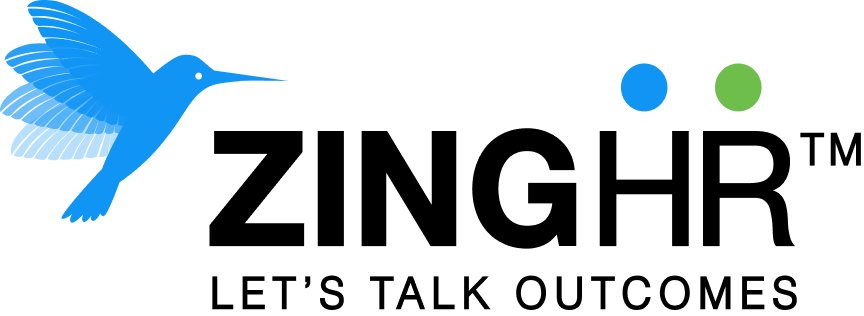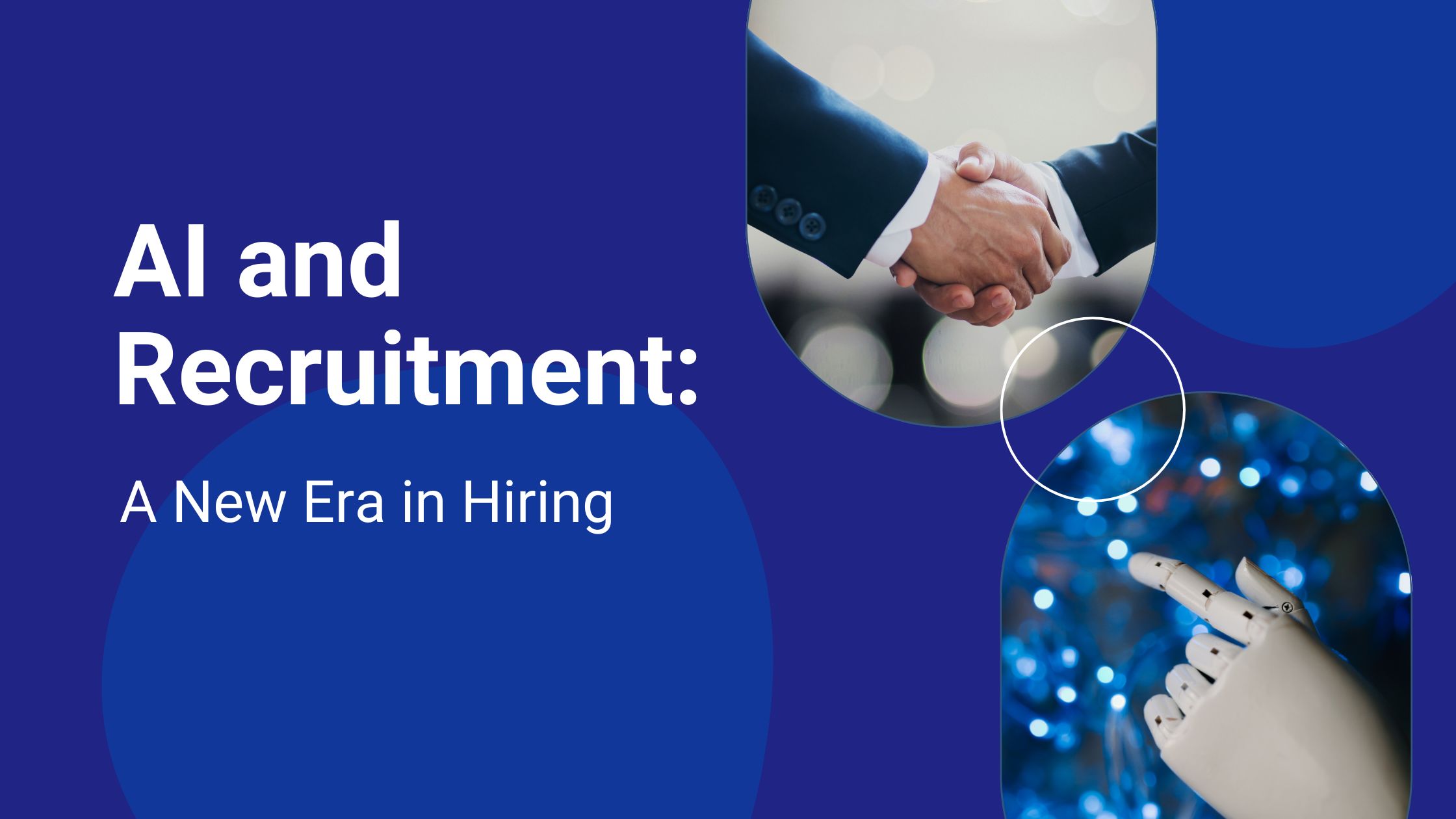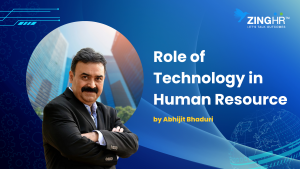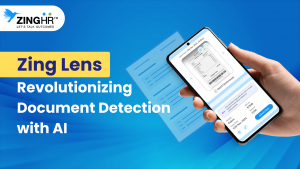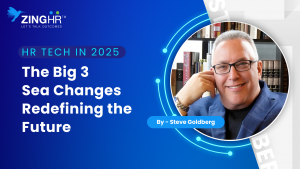Anyone who’s been involved in the recruitment industry knows that hiring isn’t always a walk in the park. You’ve got to go through a huge process before you hire the right candidate. And we all know how tiring the process really is, sorting resumes, scheduling interviews, negotiating, following up with the candidate, and finally getting them on board, it’s a lot.
It’s quite overwhelming. What if we told you, all of this can be made quite easy? Yes, it’s true. Imagine having a super-smart assistant that can work non-stop without getting tired. That’s exactly what AI in recruitment is. It’s the solution that you need to get those mundane tasks done within a blink of an eye.
In this blog, we will talk about how AI in hiring is changing the way we hire, step by step. And by the end of the blog, you’ll know how it’s making life easier for recruiters, fairer for candidates, and faster for companies. So without any further ado, let’s dive right in.
Why Is AI in Recruitment Important in 2025?
There was a time when AI was seen as a luxury, but times have changed, today, AI has become a necessity. It’s something that you need to know and use to your advantage if you don’t want to fall behind your competitors.
People look at AI as a threat, but reality is the complete opposite of it. AI isn’t here to replace humans, it’s here to make our lives easier. Picture a resume screener scanning hundreds of applications in seconds, chatbots engaging with candidates, and algorithms designed to match and shortlist people who are perfect for the roles you’re hiring for.
For example, ZingHR’s Recruitment 2.0 software allows you to access real-time recruitment data analysis, this helps your company improve recruitment efficiency while reducing the time taken to hire the right people for the right roles.
10 Effective Uses of AI in Recruitment
Let’s take a look at how AI in recruitment is transforming the entire industry. Here are 10 ways in which it’s making life easier for everyone involved
1. Lightning-Fast Hiring
Time is money, and AI saves both. How? By processing applications at a lightning-fast speed, AI makes sure that you don’t waste your time and resources.
A task that usually took days to complete before can now be done within minutes, all thanks to AI in recruitment. That’s one of the main reasons why many companies are successfully seeing positive results from fast hiring with AI.
Example: A company using a model like ZingHR’s Recruitment 2.0 cut its hiring time by 40%, this helped them onboard talent quickly and efficiently.
2. Automation of Repetitive Tasks
As anyone associated with the recruitment industry knows recruiting consists of a lot of repetitive tasks such as posting jobs, screening resumes, scheduling interviews, and much more. These tasks are important but they’re time-consuming and mundane. That’s where functions like AI resume screening and automated hiring processes can help free up time for your HR department so that they can focus on bigger tasks like recruitment strategy.
Example: Imagine your organization has implemented ATS (Applicant Tracking System). What this system does is, it automatically screens resumes based on predefined criteria, schedules interviews with shortlisted candidates, and even sends follow-up emails. This saves a lot of time and resources for the HR department.
3. Streamlined Communication with Chatbots
Have you ever felt frustrated while waiting for an email reply? Candidates feel the same way when applying for jobs. AI recruitment chatbots are designed to solve this problem by providing instant communication.
Take Zingo for example, an AI HR Chatbot that interacts with candidates, answers FAQs, and even schedules interviews. For instance, if a candidate wants to know the status of their application, Zingo provides them with an update in real-time, keeping the candidates engaged and reducing their anxiety.
Example: An organization integrated Zingo in their Human Resource Management System (HRMS) and they reported a 60% increase in candidate engagement as candidates started to receive instant responses.
4. Unbiased Candidate Assessments
Bias, whether conscious or unconscious, can creep into your decision-making process while hiring. This can lead to missed opportunities for great candidates as well as your organization missing out on someone better. AI in hiring, however, helps you make completely unbiased decisions. Because AI for recruitment focuses solely on data, such as skills, qualifications, and experience.
Example: A company implemented an AI system for their recruitment, it completely masked off information such as name, gender, and other personal details. The result? A more diverse and inclusive workspace.
5. Advanced Algorithms for Candidate Matching
Do you know how frustrating it can be when a candidate looks great on the CV but struggles to fit into the role? AI is changing that by going beyond the basics. AI looks at things like how the candidates describe their experiences, the skills they’ve developed over time, and even how their past roles are similar to the current company culture.
Example: Imagine you’re hiring for a customer service role, AI might notice that a candidate with a background in teaching can be a better match. Why? Because they have the patience and communication skills needed to succeed in the role.
This is important because hiring isn’t just about filling up a position, it’s about finding the right person to grow with your team.
6. Enabling Strategic HR Functions
HR professionals wear many hats, such as recruiters, counsellors, problem-solvers, event organizers, and many more. But when they’re buried under a pile of administrative tasks from traditional hiring methods, they rarely have the time to focus on things that can truly make a difference, like creating a work culture where employees enjoy themselves while being productive.
That’s where AI steps in, it takes care of these mundane tasks so that the HR team can focus on strategies for the bigger picture.
Example: A company used AI for resume screening and scheduling interviews, this freed up the time for their HR department to focus on wellness programs for employees.
7. Enhanced Feedback Mechanisms
Feedback is very important to learn more about yourself as an organization. It’s like a compass that tells you where you’re going wrong and what you’re doing right. However, gathering feedback manually can be quite time-consuming and tiring. Thanks to AI, this process is now quick and easy.
Example: Imagine this, AI automatically sends a quick survey to understand the candidates’ experience, it contains questions like, Were the questions clear? Was the recruiter approachable? Was the process easy? The AI then collects and organizes the data in easy-to-understand insights.
Over time, these insights turn into gold. Maybe you learn that many candidates consistently struggle with a certain part of the application process, prompting you to simplify it. These small changes make a huge difference to the candidates’ experience.
8. Real-Time Skill Assessment
Resumes are like movie trailers, they can just give you an overview of the candidate. But they don’t show you the full picture. That’s where AI-powered skill tests come in, helping you see the candidates in action yourself.
Example: Let’s say you’re looking to hire a software developer. Instead of just relying on their resume to understand their coding skills, an AI can set up a live coding test based on the role you’re hiring for. This can help you evaluate the candidate on their skills and not just their resume.
9. Reducing Human Error in Data Management
We’ve all been there, misplacing an important document or forgetting to follow up with a candidate. With so many things going on, it’s easy for things to slip through the cracks sometimes. AI in recruitment is like having a super-organized friend who never loses track of anything.
Example: Imagine you’re handling multiple job openings at once. One candidate is in an interview, one is waiting for the follow-up, and one has just been hired.
AI tools keep everything in order, automatically updating candidate profiles and progress, setting reminders for follow-ups, also flagging off any overlapping stuff when it comes to scheduling.
10. Passive Candidate Sourcing
Not everyone is actively looking for a job, but that doesn’t mean that they won’t jump at the right opportunity. AI can scan vast amounts of data to identify these “passive candidates” and bring them to your attention. This helps you expand your talent pool, something that will come in handy when you are looking to hire new people.
Example: Let’s say you’re looking for a marketing manager. Now instead of waiting for the candidates to get in touch with you, AI scans LinkedIn profiles, portfolios, websites, and other platforms. It identifies someone who hasn’t applied but has all the skills you’re looking for.
The Future of AI in Hiring
The way we hire is evolving every day, and AI is at the heart of this evolution. AI recruitment trends in 2025 have grown beyond just being trends, they’re quickly becoming the new norm.
1. Hyper-Personalized Candidate Experiences
Imagine applying for a job and suddenly feeling like the entire process was built just for you. That’s the promise of hyper-personalized candidate experiences. Future AI systems will go beyond the one-size-fits-all approaches, tailoring every step of the recruitment journey based on the situation.
Impact: This level of personalization isn’t just about convenience, it’s about making the candidates feel valued and understood. A tailored experience leaves a lasting impression and a positive experience for the candidates.
2. Emotion and Sentiment Analysis
One of the most exciting developments of AI in recruitment is the potential to analyze emotions and sentiments during an interview. Beyond what the candidates say during the interview, AI can assess their tone of voice, facial expressions, and even body language.
Imagine you’re in an interview where the AI notes that a candidate lights up when discussing teamwork or shows confidence when explaining their problem-solving skills. These insights help you better understand the candidate’s soft skills, something which is quite hard to measure otherwise.
Impact: When used thoughtfully, AI-powered emotional analysis can give recruiters a comprehensive view of the candidates, helping them assess personality traits that align with the company culture.
3. Predictive Analytics for Success
What if you could predict how successful a candidate might turn out to be even before they started? Predictive analysis is making this possible. By analyzing data such as past performance, career progression, and retention rate, AI can identify patterns and predict which candidates are most likely to excel in a particular role.
Impact: Predictive analysis improves the quality of hires thereby reducing the chance of employee turnover. It helps companies invest in candidates who are more likely to fit in well, stay, and grow in the long run. This ultimately helps the organization save time and money while building a stronger team.
4. Real-Time Market Insights
As you know, the job market is constantly evolving, and staying ahead can be challenging. AI can monitor these changes in real-time, providing insights into emerging trends when it comes to skills, salaries, and candidate demands. These insights can help the organization adapt and evolve with the market without worrying about falling behind its competitors.
Impact: Real-time market insights empower recruiters to make decisions based on data. This ensures that the company can remain competitive and responsive in the fast-changing business landscape.
5. Adaptive AI for Workforce Changes
Just like the market, the workforce is constantly evolving as well. New technologies emerge, industries evolve, and roles adapt. Adaptive AI systems are designed to keep up with these changes. These systems can learn from new data and automatically adjust hiring criteria to reflect current trends.
Impact: The purpose of adaptive AI is to ensure that companies stay agile and competitive. This enables recruiters to enhance their hiring practices as the workforce evolves. It’s like having a recruitment system that grows and evolves along with the evolving market and workforce.
Conclusion
As we look into the future, it’s clear that AI is not here to replace human recruiters, it’s here to help and empower them. AI in hiring is making recruitment smarter, faster, and more streamlined. Because the future of hiring is not just about finding the right person for the job. It’s about creating a recruitment process that is better and more engaging.
With AI taking care of most of the business as usual, the HR department can focus on what they do best i.e. building connections, understanding people, and creating teams that thrive.
Are you ready to embrace the future of AI in hiring? It’s not just closer than you think, it’s already here, shaping the way we work and grow.
